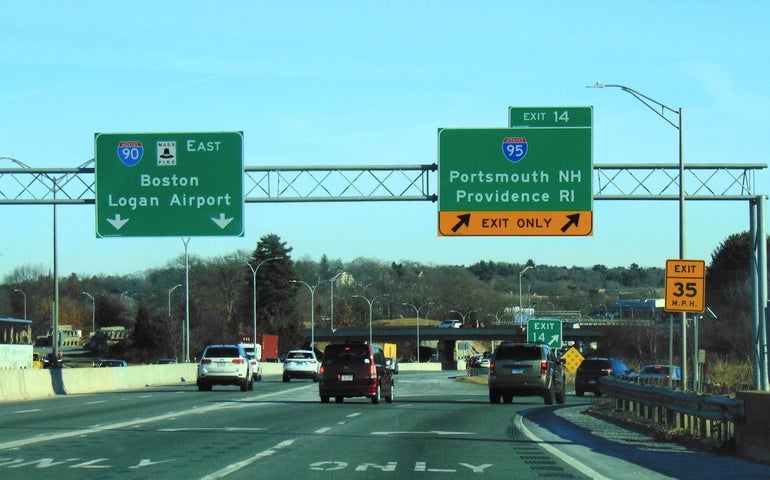Massachusetts voters support raising new revenue to make transportation investments, but a new poll shows they are divided over some of the key methods that lawmakers are weighing to generate funding.
While registered voters showed some support for other strategies such as increasing fees on ride-share services, a poll of 600 registered voters, released Friday by the MassINC Polling Group, revealed a split reception to a phased-in gas tax hike and majority opposition for a larger, all-at-once increase.
House leaders, who this week agreed to delay their planned fall debate until at least January, have said bumping up the state’s 24-cent-per-gallon gas tax will likely be a central component of the eventual package, arguing that every penny increase leads to another $35 million in revenue.
Gov. Charlie Baker opposes any gas tax hike, and the threat of his potential veto means legislators will likely need two thirds majority support in both chambers to enshrine an increase in state law.
Lawmakers last increased the state’s gas tax in 2013 by 3 cents. They also indexed it to increase alongside inflation, but voters repealed that measure by a ballot question one year later.
Forty-nine percent of voters in MassINC’s latest poll, which was sponsored by the Barr Foundation, supported raising the gas tax 5 cents three separate times over a six-year period, compared to 47 percent who opposed the idea and 5 percent who said they were undecided.
When asked about a single 15-cent increase, 52 percent opposed the idea and 43 percent supported it.
A MassINC poll conducted in August found 68 percent of respondents against a gas tax increase.
Despite their lack of enthusiasm for gas tax hikes and for expanding roadway tolls to highways that do not currently have them, voters surveyed backed several revenue-generating ideas that have been floated on Beacon Hill.
Nine of the 14 specific ideas researchers asked about during the Nov. 6-7 polling period received more support than opposition, seven of those by double-digit margins.
“As lawmakers tackle transportation funding for the second time this decade, most voters are on board with the need for both action and more revenue,” MassINC researchers wrote in a report explaining the poll results. “Despite different regions experiencing transportation stresses in different ways, there is widespread acceptance of the need to do something — and support for some ways, at least, of raising more money to do it.”
The most popular strategy in MassINC’s latest poll was collecting contributions from real estate development projects that are located near major highways or public transit and directing the money toward the infrastructure. There was 73 percent support for that idea and only 18 percent opposition.
Voters were interested in the Transportation and Climate Initiative, a cap-and-invest system Massachusetts leaders are developing alongside a dozen other states that will likely increase prices at the pump and reduce carbon emissions. Sixty-two percent said they support the program, compared to 30 percent who do not.
Fifty-six percent of those polled backed a “managed lane” system where existing lanes would be converted to tolled so that some drivers could pay for a faster trip. Thirty-five percent opposed that proposal. Gov. Charlie Baker has expressed interest in a similar idea, though cautioned that it would not be possible to convert free lanes into priced ones.
Voters also endorsed imposing tolls at state borders 50 percent to 41 percent and, with 51 percent support and 38 percent opposition, increasing trip fees on transportation network companies such as Uber and Lyft.
They were split on the proposal of congestion pricing, where tolls are altered to affect commuting behavior: a large majority supported reducing tolls at off-peak times, while only 46 percent supported increasing those prices at rush hour.
A range of stakeholders have called on lawmakers to address ubiquitous traffic congestion and an aging transit network, particularly in the wake of an MBTA derailment that imposed months of delays and chronic traffic congestion problems in Massachusetts.
MassINC’s poll found 71 percent of respondents agreed that “action is urgently needed to improve the state’s transportation system.” Seventy-seven percent strongly or somewhat supported the general push for new transportation revenue compared to 15 percent who were opposed.
However, 49 percent of respondents also said they believe the state has the money it needs for transportation and only needs to spend it well compared to 39 percent who said more money is necessary regardless.
Democratic House leadership said for months they planned to take up the topic this fall, but House Speaker Robert DeLeo told the News Service Thursday the debate would now take place in early 2020.

